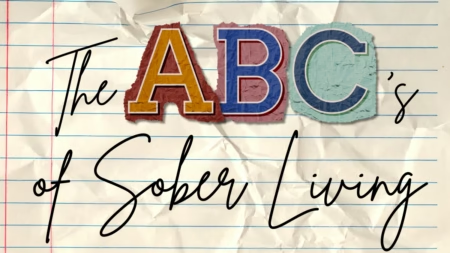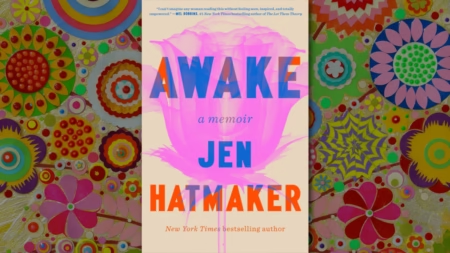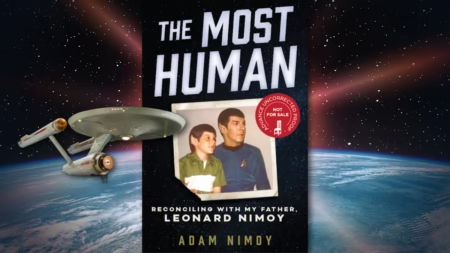In my previous blog, I wrote about how my journey through sobriety was enabled by various more literal journeys, running from A to B, up and down, around and about the UK. Rediscovering the fitness that I’d lost after a serious rugby injury – and building up to running a series of ultramarathons – became my Higher Power.
In particular, the Kennet and Avon Canal Race, a 145-mile run from London to Bristol along England’s canals, pushed me to my limits. During a heatwave in July 2021, the mercury pushed over 30°C – which is approaching the 90°F mark – and race conditions weren’t made any easier by having to run through overnight thunderstorms. Still, 31-and-a-bit hours after leaving Little Venice, near London’s Paddington Station, I padded along the banks of the River Avon on the outskirts of Bristol towards a small gathering of crew members, who were waiting to cheer me over the finish line. Having tied the knot six days beforehand, my extremely accommodating and supportive wife, Krista, joined me to scrape me through the last 20 miles, making those final few hours, by which stage I was hallucinating, far more bearable.
When I had initially struggled with my Higher Power, perhaps it was fate that had me sitting down one Sunday morning and watching the London Marathon on TV, sparking the idea to embark on a series of endurance-based fitness challenges. Five years later, in a similar vein, I found myself perusing the news one day to read about Tom Hardy, the British actor of Inception, Legend, The Dark Knight Rises, and Venom fame, competing in a Brazilian jiu jitsu tournament. The news did the rounds of Hardy, competing under his real name Edward, winning his division, and my immediate thought was of his poor opponent looking up and realising he’s about to fight Bane. I mean, if the guy can snap Batman in half, sales manager Andy from Milton Keynes doesn’t stand much of a chance, does he?
Afterwards, Hardy posted a photo of himself on Instagram, wearing a gi, head bent in contemplation, alongside the following caption:
‘Addiction is difficult and complex stuff to navigate, as is mental health. Subjects that are both deeply personal for me and extremely close to my heart.
‘Simple training, for me (as a hobby and a private love) has been fundamentally key to further develop a deeper sense of inner resilience, calm, and well-being. I can’t stress the importance it has had and the impact on my life.’
I had read about Hardy’s history of alcohol and drug addiction and hugely respected him for the openness with which he had shared his experiences. And the impact of this regime for him was interesting.
There are far longer and more brutal runs and races out there than the KACR, but I felt like I’d scratched an itch and decided that the second-place finish in a 145-mile race wouldn’t be too bad a high to go out on. I no longer felt compelled to find the next level of my limits and didn’t have anything further to prove to myself. Ultrarunning had served its purpose as my short-term sobriety mechanism and a means of channelling my emotions into something positive. Plus, I didn’t want the hours upon hours of arduous training eating into the more important things in my life, like spending time with my beautiful bride (and now son).
So it was that I found myself strolling into my local BJJ school and being folded in half, choked, and having my arms almost snapped off. I was immediately hooked. But it isn’t the combative nature of the sport that has kept me coming back for more of this brutality – it’s the incredible parallels between BJJ and sobriety.
Both are continual processes. The more you learn, the more you realise there is to learn. Every day (or training session) throws out a new challenge and part of the joy comes in determining how you’re going to overcome each of those challenges. Without having been choked – or without having had a drink.
And for the five minutes that you’re rolling – we don’t use the word ‘fight’ – you can’t think about anything else. Not about the mortgage, the costs of childcare, the work deadline, the repairs the car needs, the DIY tasks you haven’t completed, the argument you had with your partner. If you do, you’ll get choked or have your arm snapped off. It raises an interesting question: in this world of constant distractions, how often do you get a chance to be completely, 100% present? Answer: probably not often enough.
As a blue belt, two and a half years on, I am still only just scratching the surface of this fascinating sport and everything it has to offer – indeed, my coach, a black belt of 15 years’ experience claims he is only just scratching the surface – and I love the concept of committing myself to something until the day I die, even with the knowledge that I’ll never master it. I call it being the eternal student.
Much like ultrarunning, I appreciate BJJ isn’t for everyone. I’m not saying you have to rush out and learn how to choke or armbar someone using the Ezekiel choke. But I am saying that you need something in your life – and in your sobriety – that gives you that connection back to yourself. Something that removes you from the everyday stresses of life, if only for a few minutes at a time. When things are tough, all it takes is a moment or two of simply being present to reset and remind yourself of your ‘why’.
By doing so, we can build mental fitness, which I define as the ability to ride life’s rollercoaster of ups and downs, about which I go into in far more detail in my book, READY, SET, LIFE. Please pick up a copy.
READY. SET. LIFE, covering my journey through sobriety and the lessons learned, is available on Amazon in hardback, paperback, and Kindle formats.

MASTERING MENTAL FITNESS: Here you can read a blend of personal narratives, scientific insights, and actionable strategies from James Gwinnett focused on:
- Movement: Encouraging regular physical activity to boost endorphins and combat stress
- Mindfulness: Promoting practices that foster self-awareness and emotional regulation.
- Connection: Highlighting the role of community and relationships in sustaining mental health.
James’s contributions aim to equip individuals with the tools to build resilience, maintain sobriety, and lead fulfilling lives.

The SOBER LIFESTYLE hub at The Sober Curator is your destination for all things bold, creative, and alcohol-free. We’re here to smash the clichés about sobriety, proving that life without booze is vibrant, stylish, and full of possibility.
Inside you’ll find curated #ADDTOCART shopping picks, DIY Curated Crafts, and Coming Out Sober -a look at recovery through the LGBTQ lens. Plus, you’ll find inspiring Sober Spotlight interviews, fashion features, official Sober Curator merch, practical Sober Content Creation how-to’s, and the addictive Sober Unbuzzed Feed—perfect for list lovers. Whether you’re newly sober or thriving in long-term recovery, this space celebrates the creativity, connection, and joy that define the modern sober lifestyle.
All the cool kids go to rehab…

Resources Are Available
If you or someone you know is experiencing difficulties surrounding alcoholism, addiction, or mental illness, please reach out and ask for help. People everywhere can and want to help; you just have to know where to look. And continue to look until you find what works for you. Click here for a list of regional and national resources.







